Super User
How to preserve paper bulk thanks to our SMARNIP® mini shoe press
The bulk is an important characteristic for many types of paper, capable of determining the softness of the papers for hygienic-sanitary use or the dimensional stability of the paper sold in sheets. In these cases, where it is essential to implement a correct and effective pressing process, our SMARNIP® mini shoe press is the ideal solution to optimize the dryness and mechanical properties of the paper.
The shoe press is a Beloit invention dating back to the 1980s aimed at the production of packaging paper. It is an extended nip press (ENP) where a concave stationary shoe, opposed to a cylinder, is used to substantially expand the nip, thus allowing the application of a high linear load while keeping the specific pressure low.
Since the first installations, it was possible to highlight advantages in terms of sheet drying compared to traditional cylinder presses, guaranteeing excellent results in terms of increased production and energy savings. The interest aroused by this innovation has led to the application of the concept also in the production of graphic papers, but we had to wait until 2003 to have a shoe press specifically designed for applications where paper bulk was a priority.
It was in that year that PMT, a company part of the A.Celli Group since 2020, patented the SMARNIP® mini shoe press. Let's see the characteristics of this solution in detail.
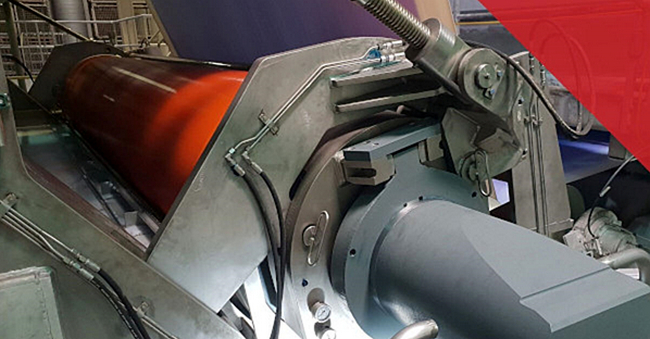
Why PMT developed the SMARNIP® mini shoe press
The experience deriving from applications in production lines of graphic papers and papers with specific bulk needs has led to the conclusion that, for these products, the "standard" load exerted by a conventional shoe press (about 1,000 kN/m) is excessive.
Furthermore, even the size of this shoe press itself is disproportionate to the real needs, for which a smaller and more manageable solution is sufficient also from the point of view of the overall dimensions.
The installation of a conventional shoe press also requires significant interventions on the paper machine and, often, on its surroundings, such as the strengthening of the overhead crane and the reinforcement of civil structures, with an increase in installation costs and a reduction of the profitability of the investment.
To overcome these limitations and find an appropriate balance between the desired degree of dryness and the qualitative properties of the paper, we have developed and patented the SMARNIP® mini shoe press.
The characteristics of the SMARNIP®
The SMARNIP® is a relatively compact and light solution, with diameter from 700 mm to 1000 mm, shoe width from 70 mm to 125 mm and overall dimensions similar to a variable-crown roll.
Our mini shoe press is capable of exerting a linear load from 100 to 700 kN/m and has the same characteristics as a conventional shoe press, i.e. a pivoting concave shoe loaded by two rows of transverse pistons and a commercial polyurethane sleeve.
The aforementioned loading system gives the SMARNIP® an operational flexibility such as to guarantee an optimal ratio between dryness and bulk. Furthermore, the distribution of the hydraulic pressure applied to the pistons can be easily set while the machine is running to facilitate optimization even in the event of frequent production changes.
SMARNIP® advantages
The numerous references and the positive experiences accumulated have shown that our SMARNIP® mini shoe press is able to increase dryness up to 2% more than a roll press with the same bulk (this result can obviously vary based on the composition of the mixture of the specific case).
Considering the advantages obtained also in relation to the small dimensions of our solution, it is often interesting to consider the installation of two SMARNIP® in the same press section. This possibility opens the way to a completely new approach in evaluating the possible investments to be made in the press section itself.
The installation of the SMARNIP® is particularly recommended for paper machines of limited width and, in general, for the production of all types of paper in which a high bulk is sought.
Among the many advantages we can mention:
- Increase in production, thanks to an increase in the degree of dryness and a consequent reduction in the evaporation load on the dryer
- Greater efficiency of the paper machine, as it is possible to obtain a drier, more resistant sheet
- Greater bulk
- Better control of paper smoothness, both in absolute terms and relative terms (between the two sides of the paper)
- Easy installation, thanks to the limited dimensions
- Less interventions on the building due to the reduced weight of our mini shoe press
- Interchangeability with conventional cylinder, unlike a traditional shoe press which has a greater distance between bearings than roll presses
Ultimately, the SMARNIP® embodies all the advantages of the shoe press while preserving the simplicity and compactness of traditional presses.
Stora Enso accelerates its growth agenda by exploring expansion in production of renewable consumer packaging board
Stora Enso is starting a feasibility study for the possible conversion of an idle paper machine at its Oulu site in Finland for a high-volume consumer board line. On a successful completion of the feasibility study, an investment decision could be made by the end of 2022 with start-up in 2025.
Stora Enso’s strategy is to invest in growth to support the strong, continuous demand for sustainable packaging. This is one of the key strategic focus areas in which the Group is building its market share with both existing and new customers. Stora Enso already holds a leading global market position in this segment. The potential investment in Oulu would target high-quality and low carbon-footprint packaging segments for frozen and chilled food and beverages, as well as for non-food applications such as pharma and cosmetics. The feasibility study will also assess how the conversion could contribute to Stora Enso’s science-based targets regarding operational CO2 emissions.
“This investment would respond to the strong customer demand to replace plastic in packaging. During the study, we will evaluate the profitability of the possible conversion and how to optimise current production synergies to create a modern mega-site at Oulu. In addition to strong demand, we can rely on an experienced team and what we learnt from the first successful conversion in Oulu, which is already ahead of schedule on profitability,” says Hannu Kasurinen, Executive Vice President, Packaging Materials division.
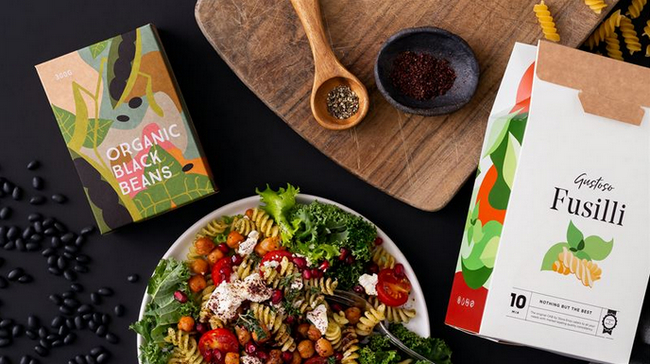 Consumer packaging board products
Consumer packaging board products
Based on full ramp-up, the potential top line sales impact of the conversion would gradually reach an annual level of EUR 800 million. Capital expenditure is estimated to be EUR 900–1,000 million during 2023–2026. The investment would include the conversion of the former paper machine and the sheeting facility. It would also include investments in wood handling, the bleached chemi-thermomechanical pulp (BCTMP) plant, the biomass boiler and the effluent treatment plant.
The increase in pulp wood consumption in Oulu would be approximately one million cubic metres, utilising the volumes freed up after closure of the Veitsiluoto site. With the investment, an estimated 150−200 new employees would be needed, including logistics and maintenance. The investment would also utilise captive chemical pulp, creating a net reduction of approximately 300,000 tonnes in Stora Enso’s total market pulp exposure.
The planned annual capacity of the converted machine would be 750,000 tonnes of folding box board (FBB), coated unbleached kraft (CUK) and liner grades.
Part of the global bioeconomy, Stora Enso is a leading provider of renewable products in packaging, biomaterials, wooden construction and paper, and one of the largest private forest owners in the world. We believe that everything that is made from fossil-based materials today can be made from a tree tomorrow. Stora Enso has approximately 22,000 employees and our sales in 2021 were EUR 10.2 billion. Stora Enso shares are listed on Nasdaq Helsinki Oy (STEAV, STERV) and Nasdaq Stockholm AB (STE A, STE R). In addition, the shares are traded in the USA as ADRs (SEOAY). storaenso.com
From news media to e-commerce & hygiene, we are changing how we consume paper & board, a new Cepi report shows.
Like other sectors, paper and board is bouncing back from the economic downturn brought about by Covid-19. But new trends on how we use these materials, first exacerbated by the pandemic, are now looking like more profound changes in our consumption patterns. This has caused the industry to adjust its production, discontinuing lines and investing to adapt to the change. That’s the story told by preliminary statistics for the past year, published by the in-house statistics team of Cepi, the Confederation of European Paper Industries.
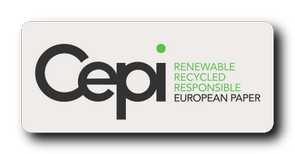 While consumption of paper products had decreased by 6.6% in 2020, the sector is now showing signs of a strong recovery, with consumption increasing by 5% over the past year in countries represented in the Confederation of European Paper Industries. Answering a renewed demand from clients both European and global, production rebounded by 5.8%. Exports outside of Cepi countries, which had gone down by 8.4% in 2020, are back to their 2019 level, driven by strong increases in sales on North and South American markets.
While consumption of paper products had decreased by 6.6% in 2020, the sector is now showing signs of a strong recovery, with consumption increasing by 5% over the past year in countries represented in the Confederation of European Paper Industries. Answering a renewed demand from clients both European and global, production rebounded by 5.8%. Exports outside of Cepi countries, which had gone down by 8.4% in 2020, are back to their 2019 level, driven by strong increases in sales on North and South American markets.
Beyond the effects of the global economic engine roaring back to life, other factors are coming into play. Covid-19 has caused a dramatic surge in online shopping, which has been a boon for producers of paper and board packaging. The production of paper and board used for this purpose is estimated to have increased by 7.1% in 2021 when compared to 2020, and up from a 2.1% increase in 2019.
Combined to this is a new demand for our products’ encasings to be more sustainable, and the high recyclability of paper and board have contributed to the materials’ popularity amongst consumer-oriented shippers and transporters. Various sectors are now using paper and board packaging, notably as a solution for the delivery of food or medical and pharmaceutical supplies. Paper is also a staple for the hygiene industry and, while demand for paper for sanitary uses has somewhat decreased in 2021, it is still slightly above pre-pandemic consumption levels.
The overall production of ‘graphic grades’, paper used for printing, drawing and writing, has now registered a small increase, confirming some sub-sectors’ resilience in the midst of a structural decline. But demand for paper used in newsprint is still waning as a result of our ever-increasing reliance on screens for news consumption, with some producers still adjusting to this new reality.
Another set of statistics shows a more positive trend, and maybe an even deeper transformation. The production of wrapping grades – used for paper bag production, increased by a whopping 11.7%, benefitting from the EU-backed phase-out of plastic packaging. Production of paper for innovative uses, mainly for industrial purposes, increased by as much as 9.6%.
These figures, relating to both traditional and more innovative products from biorefineries, point towards what is known in the industry as the ‘substitution effect’. Paper and other forest-based products are set to progressively replace, to some extent, various less sustainable materials and chemicals. This is something the pulp and paper industry has pledged to support. Although these products still represent a marginal share of the overall production, Cepi statistics show that these changes are taking place rapidly and are even accelerating.
Download Cepi’s preliminary statistics report for 2021.
About Cepi :
Cepi is the European association representing the paper industry. We offer a wide range of renewable and recyclable wood-based fibre solutions to EU citizens: from packaging to textile, hygiene and tissue products, printing and graphic papers as well as speciality papers, but also bio-chemicals for food and pharmaceuticals, bio-composites and bioenergy.
Cepi is the European association representing the paper industry. We offer a wide range of renewable and recyclable wood-based fibre solutions to EU citizens: from packaging to textile, hygiene and tissue products, printing and graphic papers as well as speciality papers, but also bio-chemicals for food and pharmaceuticals, bio-composites and bioenergy. We are a responsible industry: 85% of our raw materials are sourced in Europe and certified as sustainable, 92% of the water we use is returned in good condition to the environment. We are the world champion in recycling at the rate of 73.9%. At the forefront of the decarbonisation and industrial transformation of our economy, we embrace digitalisation and bring 18.5 billion value addition to the European economy and €4.5 billion investments annually. Through its 18 national associations, Cepi gathers 495 companies operating 895 mills across Europe and directly employing more than 180,000 people.
More information about our sustainability performance here.
Stora Enso and Picadeli join forces to reduce single-use plastic in salad packaging
Stora Enso and Picadeli, Europe’s leading take-away salad bar company, are introducing renewable formed fiber lids to replace single-use plastics in take-away packaging. The lids are made of PureFiber™ by Stora Enso, and they are plastic-free, recyclable, and biodegradable. The innovation will help Picadeli reduce approximately 120 tonnes of plastic waste annually.
“Our strategic aim is to grow with sustainable, scalable, and innovative packaging solutions. We do this by supporting strong forerunner brands such as Picadeli in meeting the growing consumer demand for plastic-free and circular solutions. A salad bowl lid is a good example of an everyday single-use plastic item that can make an important difference on climate footprint when replaced by a sustainable alternative,” says Sohrab Kazemahvazi, SVP Formed Fiber at Stora Enso.
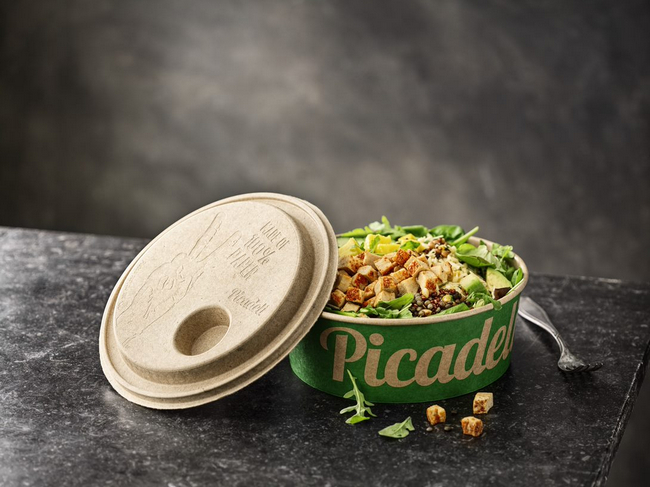
Packaging accounts for 40% of the world’s plastics, most of which are made from fossil oil. The carbon footprint of the PureFiber™ lid is up to 75% lower compared to alternative materials such as plastic or bagasse. PureFiber™ products are produced from wood-based formed fiber using green energy. They contain no plastic, no per- and polyfluoroalkyl substances (PFAS), or any other forever chemicals. The lids provide a good user experience and tightly seal the food inside. The new formed fiber lids will be available for consumers at Picadeli salad bars starting March 2022.
“Food and sustainability have been much discussed in recent years but knowing how to make choices that are both healthy and come with a low carbon footprint is not always easy,” says David von Laskowski, Group CEO at Picadeli. “We work continuously to make tasty, sustainable, and healthy fast food more accessible. Launching the formed fiber lid will further reduce our carbon footprint, supporting our business strategy for sustainability.”
PureFiber™ can be used in a wide range of applications including single-use food packaging items such as plastic-free cups, bowls, clamshells, plates, and lids. PureFiber™ can also be used to replace plastic packaging for other industries, such as in agriculture, electronics, and cosmetics. Formed fiber is a growth business for Stora Enso, and the Group recently announced expansion of its formed fiber production capacity in Europe. The fiber raw material comes from sustainably managed forests.
About Picadeli
Picadeli is a Swedish salad pioneer, driven by the belief that fast food should be food that’s good for you. The idea is simple; through self-served salad bars, democratize healthy food by making it accessible, affordable and appetizing. Since the start in 2009, Picadeli has enabled the grocery retail and convenience stores to offer consumers a fresh and tasty concept and the high-tech salad bars are now to be found in some 2000 stores around Europe and the United States. The company currently has an annual turnover of more than SEK 1.4 billion which represents close to SEK 3 billion in retail value.
Sawlog supply in US South is tightening, opportunities for pulp and wood pellet expansion
The US South’s softwood industry has enormous potential for a variety of reasons. The region has a significant forest resource with room for expansion, low and stable wood costs, and a thriving lumber and pellet manufacturing sector. The local forest industry is set to grow in the coming years and play a more prominent role in regional and global forest product markets. This expansion will lead to a tighter log market, but growth will still exceed harvests (drain) in most states. Longer-term, the drain could overtake growth in some states unless the productive forest area expands, harvest yields improve, or access to small woodlots and underutilized forest increases. It should be noted that wood markets are often very local, and the demand-supply balance can vary significantly in micro-markets within individual states.
The sawmilling industry is the largest end-user of softwood logs in the US South and is also the sector that has increased capacity the most over the past decade. Lumber output has grown from 26% of North American production in 2011 to 33% in 2021. Lumber producers in the region are still not likely to be significant players in international markets due to expected strong domestic demand and declining imports from Canada. However, the continued expansion in capacity will help reduce the US lumber import demand in the coming years.
 Pulp mills receive about one-third of harvested softwood roundwood in the US South. With the pulp sector not expected to expand in the short-term, wood fiber demand will not change much. With increases in residue supply from the expanding lumber sector, there will be less demand for softwood pulplogs, a trend that will probably intensify in the coming years.
Pulp mills receive about one-third of harvested softwood roundwood in the US South. With the pulp sector not expected to expand in the short-term, wood fiber demand will not change much. With increases in residue supply from the expanding lumber sector, there will be less demand for softwood pulplogs, a trend that will probably intensify in the coming years.
In the new Focus Report: US South Softwood Industry - Outlook for the world's most important softwood fiber basket, Wood Resources International (WRI) and O'Kelly Acumen establish a fact base around the forest resources and industry in the Southern US. The report also highlights plans for increased manufacturing capacity, reduced US lumber import needs, and opportunities for forest products exports from the world's largest softwood forest product-producing region.
One of the conclusions from the study is that the expansion of the lumber industry in the South looks set to outpace wood fiber-based industries (pellets, panels, and pulp), potentially creating a deficit in demand for small-diameter logs and sawmill residues. Finding end-uses for smaller logs could be the most significant predicament for timberland owners in the US South in the coming decade. However, the surplus of small-diameter logs will create long-term opportunities to expand pulp and wood pellet sectors.
The excerpt above is from the just-released Focus Report "US South Softwood Industry - Outlook for the world's most important softwood fiber basket" published by Wood Resources International LLC and O'Kelly Acumen. For more information about the study or to inquire about purchasing the 85-page report, please contact either Hakan Ekstrom (//This email address is being protected from spambots. You need JavaScript enabled to view it.">This email address is being protected from spambots. You need JavaScript enabled to view it.) or Glen O'Kelly (This email address is being protected from spambots. You need JavaScript enabled to view it.).
AMETEK Surface Vision Delivers Improved Inspection and Defect Detection
AMETEK Surface Vision, the leading provider of online surface inspection solutions, has installed an automated system to check materials, improve quality, and reduce customer claims at Texbond Srl.
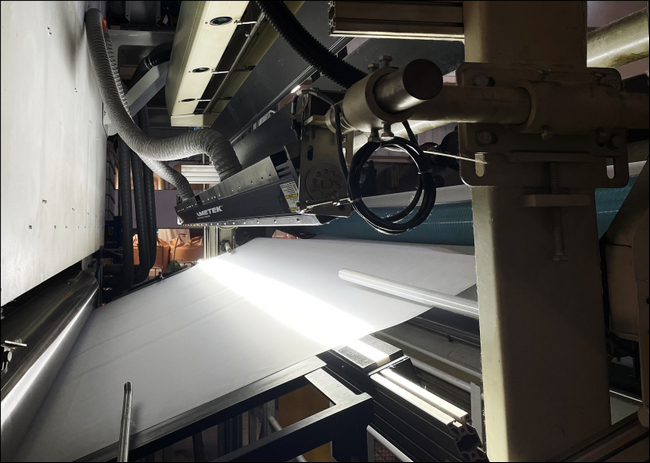
Based in Italy, Texbond is a manufacturer of spunlaid thermal-bonded nonwoven products for a wide-range of applications, including personal care, hygiene, medical, furniture and design, farming, building, and motor vehicles.
Initially, the company was relying on human inspection for quality assurance of its products; however, it wanted to move to a robust, easy-to-use, automated system to improve quality, speed, and process optimization.
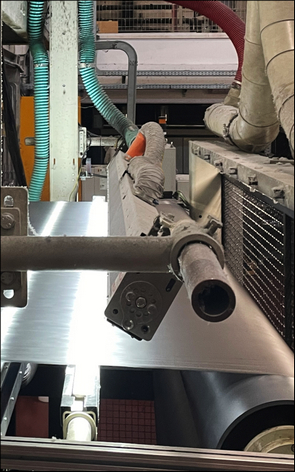 The medical and hygiene market in particular is extremely demanding and insists on defect-free material due to the nature of its use. Other markets also have high quality standards and common defects. For example, holes and contamination can affect the visual properties of the material.
The medical and hygiene market in particular is extremely demanding and insists on defect-free material due to the nature of its use. Other markets also have high quality standards and common defects. For example, holes and contamination can affect the visual properties of the material.
Texbond needed a robust system that delivered high-resolution inspection in real time, along with a modular approach that uses state-of-the-art technology. Reporting capabilities, expert service support, and availability were also key requirements.
Flexible and customizable, AMETEK Surface Vision’s SmartView system uses the most advanced inspection technologies and provides precise, real-time detection. Texbond installed two SmartView systems in the production process. One on Line 3 (colored materials) and the other on Line 4 (different weights of white nonwovens).
Each system uses four reflection transmission cameras positioned at the exit of the line and before the winder to act as a “gatekeeper,” detecting all relevant defects and contamination. The use of a white backing bar helped support contamination detection on Line 3, while SmartView’s LED lights ensured high performance when inspecting heavy material.
The systems are integrated with Texbond’s process control, for automatic start and stop of inspection, and store information for database analysis.
Enrico Chemello, Quality Manager at Texbond, said: “SmartView has really helped to optimize the quality of our products. Defects are detected and the material’s visual properties can be assessed in real time, allowing immediate intervention and optimization of the process, and the elimination of any process upsets. The result is an optimized production with reduced scrap.
“The SmartView system has met our expectations, proving its solid defect detection capabilities. The system became productive in a short time, providing images and defect information from day one.”
Marco Saitta, Sales Account Manager at AMETEK Surface Vision commented: “Identifying defective material through SmartView at an early stage of production significantly contributes to savings in raw materials, energy, transportation cost, and production time. It also provides general cost reduction and yield optimization.”
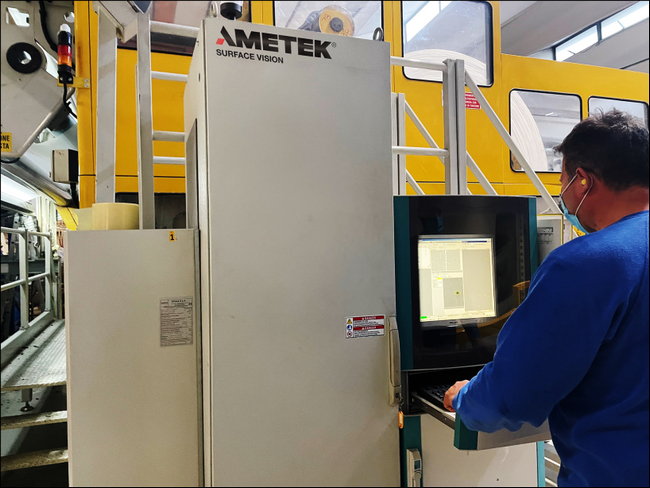
For more information, go to ameteksurfacevision.com
About AMETEK Surface Vision
AMETEK Surface Vision (formerly Cognex Surface Inspection Systems Division) is a world leader in automated online surface inspection solutions with a broad product portfolio optimized for web and surface inspection and monitoring and process surveillance applications.
Its product portfolio includes three distinct product lines: SmartView® systems, SmartAdvisor® systems and Slit Inspection. Each product line uniquely enables customers to inspect the surfaces of materials processed in a continuous fashion across the metals, paper, plastics, nonwovens and glass industries. For more information, visit ameteksurfacevision.com
AMETEK Surface Vision is unit of AMETEK Process and Analytical Instruments, a division of AMETEK, Inc., a global manufacturer of electronic instruments and electromechanical devices.
Albany International Named to Forbes America’s Best Employers 2022 List
Albany International Corp. (NYSE:AIN), a leading developer and manufacturer of engineered components, has been recognized on the Forbes list of America’s Best Employers 2022.
 “At Albany we believe our talent is our best competitive advantage and we are committed to creating an inclusive culture of continuous learning and development to support our employees to unleash their fullest potential,” says Alice McCarvill, CHRO and Executive VP of Human Resources. “I am very excited about this special recognition.”
“At Albany we believe our talent is our best competitive advantage and we are committed to creating an inclusive culture of continuous learning and development to support our employees to unleash their fullest potential,” says Alice McCarvill, CHRO and Executive VP of Human Resources. “I am very excited about this special recognition.”
The Forbes ranking is based on a survey conducted by independent research company Statista of 60,000 Americans working for businesses with at least 1,000 employees. Survey participants are asked how likely they are to recommend their employer and are asked to rate their companies on factors such as working conditions, development opportunities and compensation.
The Forbes list includes rankings for more than 500 public and private entities across dozens of industries. The full list of “America’s Best Employers” and more information about its methodology are available at forbes.com.
About Albany International Corp.
Albany International is a leading developer and manufacturer of engineered components, using advanced materials processing and automation capabilities, with two core businesses. Machine Clothing is the world’s leading producer of fabrics and process belts used in the manufacture of all grades of paper products. Albany Engineered Composites is a rapidly growing designer and manufacturer of advanced materials-based engineered components for jet engine and airframe applications, supporting both commercial and military platforms. Albany International is headquartered in Rochester, New Hampshire, operates 23 plants in 11 countries, employs approximately 4,100 people worldwide, and is listed on the New York Stock Exchange (Symbol AIN). Additional information about the Company and its products and services can be found at www.albint.com.
Sappi Europe announces price rises for its Graphic Paper and Board products
Sappi Europe will increase prices for its Graphic Paper and Board products (Coated and Uncoated Fine paper, Coated Mechanical paper and Paperboard) by approximately 8% effective on deliveries from 1 April.
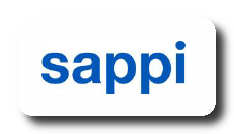 This is in addition to price increases implemented during Q1 2022, including the energy surcharges which will be absorbed to standard pricing also on 1 April
This is in addition to price increases implemented during Q1 2022, including the energy surcharges which will be absorbed to standard pricing also on 1 April
Sappi’s European sales team will be in further contact directly with customers to discuss the details of the implementation.
Sappi understands that circumstances are extremely challenging and remain committed to managing its business, supporting the industry and serving customers during this difficult period.
About Sappi
Sappi is a leading global provider of sustainable woodfibre products and solutions, in the fields of Dissolving pulp, Printing papers, Packaging and speciality papers, Casting and release papers, Biomaterials and Bio-energy. As a company that relies on renewable natural resources, sustainability is at our core. Sappi European mills hold chain of custody certifications under the Forest Stewardship Council™ (FSC™ C015022) and the Programme for the Endorsement of Forest Certification (PEFC/07-32-76) systems. Our papers are produced in mills accredited with ISO 9001, ISO 14001, ISO 50 001 and ISO
45 001 certification. We have EMAS registration at 5 of our 10 mills in Europe.
Sappi Europe SA is a division of Sappi Limited (JSE), headquartered in Johannesburg, South Africa, with 12,500 employees and 19 production facilities on three continents in nine countries, 37 sales offices globally, and customers in over 150 countries around the world.
Learn more about Sappi at www.sappi.com.
Körber Business Area Tissue presents an interfolded napkin that’s perfect for wrapping tacos
Thanks to MTC ITF omni taquera it’s possible to create facial products, towels, folded toilet paper, and taco napkins with a dispenser using one single machine
Körber Business Area Tissue’s latest innovation enables to create the complete line of interfolded products (facial, towels, folded toilet paper, napkins), including napkins for wrapping tacos, with a single machine.
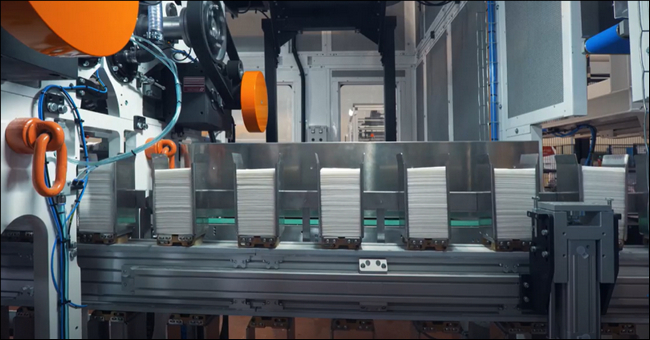
Stefano Anelli, Körber Business Area Tissue Fold Sales Manager, comments: “The South American market needed to have a napkin specifically designed for wrapping tacos. From this need and from the collaboration between the sales office, research & development, and specialized technicians, the MTC ITF omni taquera was born, an extremely versatile solution that can be installed on the MTC IFT omni lines that allows to produce all the interfolded products, including the napkins for tacos, with a single bending head.”
Ideal for companies that work with diversified clientele, the taquera option can be integrated on all MTC ITF omni lines and offers a competitive advantage for all those companies looking for a flexible and versatile solution that’s capable of responding to changing market needs.
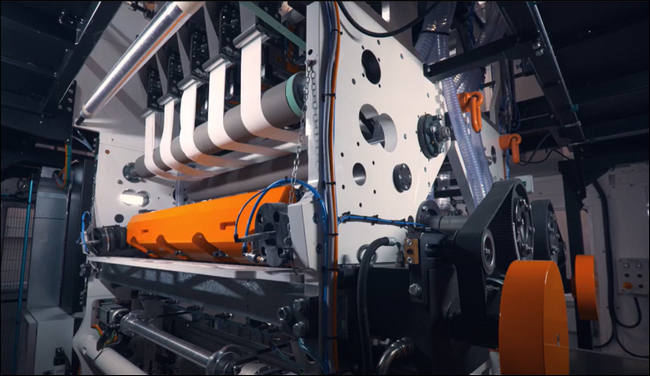
MTC ITF omni taquera combined with automatic packaging of napkins in a portable dispenser with serial extraction is a very contemporary solution because it allows to preserve the hygiene and safety of the finished product while avoiding contamination of the wipes.
Anelli concludes: "Thanks to MTC ITF omni taquera Körber Business Area Tissue confirms its role as a company that is attentive to offering its customers cutting-edge and innovative solutions. The know-how acquired over the years in the fold sector and the continuous desire to create highly performing products has allowed the company to develop a competitive product with high growth margins. The solution created for the South American market, in fact, can be used in different sectors with similar product needs. "
Körber Business Area Tissue
At Körber, our ultimate goal is to empower our customers’ ongoing success. We are the only truly integrated and global provider of advanced solutions for the tissue business. We offer the industry’s most comprehensive portfolio of tissue technology to support customers across the entire value chain — from roll to fold, from converting to packaging. Our advanced, automated, and easy-to-use integrated solutions are a fundamental asset to shape the success in tissue, take our customers operations to the next level, and strengthen their overall financial performance while optimizing their total cost of ownership.
About Körber
We are Körber – an international technology group with about 10,000 employees, more than 100 locations worldwide and a common goal: We turn entrepreneurial thinking into customer success and shape the technological change. In the Business Areas Digital, Pharma, Supply Chain, Tissue and Tobacco, we offer products, solutions and services that inspire. We act fast to customer needs, we execute ideas seamlessly, and with our innovations we create added value for our customers. In doing so, we are increasingly building on ecosystems that solve the challenges of today and tomorrow. Körber AG is the holding company of the Körber Group.
ABB launches fastest paper machine moisture sensor on the market, taking 5,000 measurements per second
ABB has released its High-Performance Infrared-Reflection (HPIR-R) moisture sensor, which provides the fastest, most precise moisture monitoring available on the market today. Taking up to 5,000 measurements per second, the sensor delivers precise, high-resolution measurement that enables mills to increase throughput while reducing operating costs.
- ABB’s new patented technology offers unprecedented speed and accuracy of moisture measurements, even in difficult locations
- Accurate measurement can lead to significant cost savings; a ~1% change in moisture can generate up to $400K in energy savings
- Precise measurement helps reduce drying costs and emissions for more sustainable operations
This advanced, patented technology will help pulp, paper and board producers to always know the precise moisture levels, giving them confidence to raise moisture targets and improve their CD profiles, enhancing end product quality with fewer rejects as a result.
Being able to measure and control the moisture levels as the sheet moves through the paper machine is critical to reducing energy requirements. This leads to optimized drying, decreased steam usage, significant energy savings in dryer sections and reduced carbon emissions. In fact, changing the steam pressure to create a moisture change of just 1% can equate to $400K in energy savings.
The small spot of infrared energy used in the sensor provides excellent streak resolution and accurate edge-to-edge sheet measurement, even in the most difficult environments. Measurement while scanning is continuous, with no beam chopping or filter wheels ensuring optimum signal-to-noise ratio and maximum measurement rate.
ABB’s new HPIR-R moisture measurement, which also has a built-in sheet temperature sensor, is designed to be fully air-cooled and field repairable. That, coupled with its insensitivity to dust and disturbances enables high uptime and lower total cost of ownership than similar solutions.
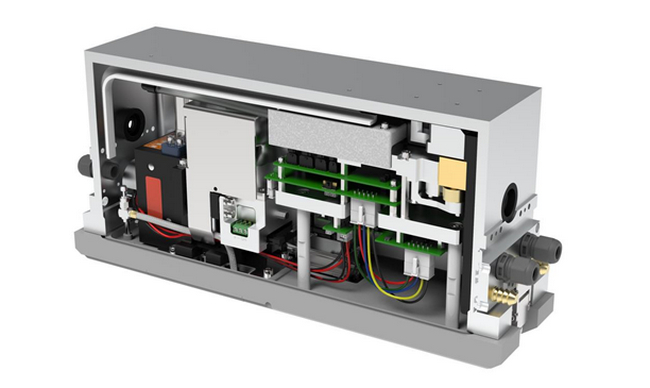
“Unlike competitive offerings, ABB’s HPIR-R moisture sensor provides the highest frequency measurements possible, which helps customers to improve quality, reduce downtime, decrease costs and increase yields,” said Andy Broomfield, Product Line Manager at ABB. “It has been designed for papermakers looking for accurate and precise moisture measurement in hot, difficult machine environments.”
While it can be placed in any location, the highest impact application for this reflection moisture sensor is before a size press, where better precision and accuracy let you raise the moisture target, giving optimized starch/sizing pickup and reduced drying energy demand. This also applies to pre-coat locations.
Another high-value application is placing it after the wet press section, enabling operators to adjust press loadings to improve the moisture profile and increase sheet dryness going into the dryers. In addition to energy savings, this also gives higher sheet strength in that sensitive area of the machine, meaning improved runnability and sheet break recovery.
Part of the ABB Ability™ Quality Management System, the sensor is fully digital with high-speed measurements provided alongside a rich set of diagnostic data which is ideal for analytics to inform on-site or corporate-level decision-making. It is applicable for all network platform types and can be used to measure publication grades, graphic papers, board, tissue, packaging, specialist and recycled grades.
ABB (ABBN: SIX Swiss Ex) is a leading global technology company that energizes the transformation of society and industry to achieve a more productive, sustainable future. By connecting software to its electrification, robotics, automation and motion portfolio, ABB pushes the boundaries of technology to drive performance to new levels. With a history of excellence stretching back more than 130 years, ABB’s success is driven by about 105,000 talented employees in over 100 countries. www.abb.com
ABB’s Process Automation business is a leader in automation, electrification and digitalization for the process and hybrid industries. We serve our customers with a broad portfolio of products, systems, and end-to-end solutions, including our # 1 distributed control system, software, and lifecycle services, industry-specific products as well as measurement and analytics, marine and turbocharging offerings. As the global #2 in the market, we build on our deep domain expertise, diverse team and global footprint, and are dedicated to helping our customers increase competitiveness, improve their return on investment and run safe, smart, and sustainable operations. go.abb/processautomation
